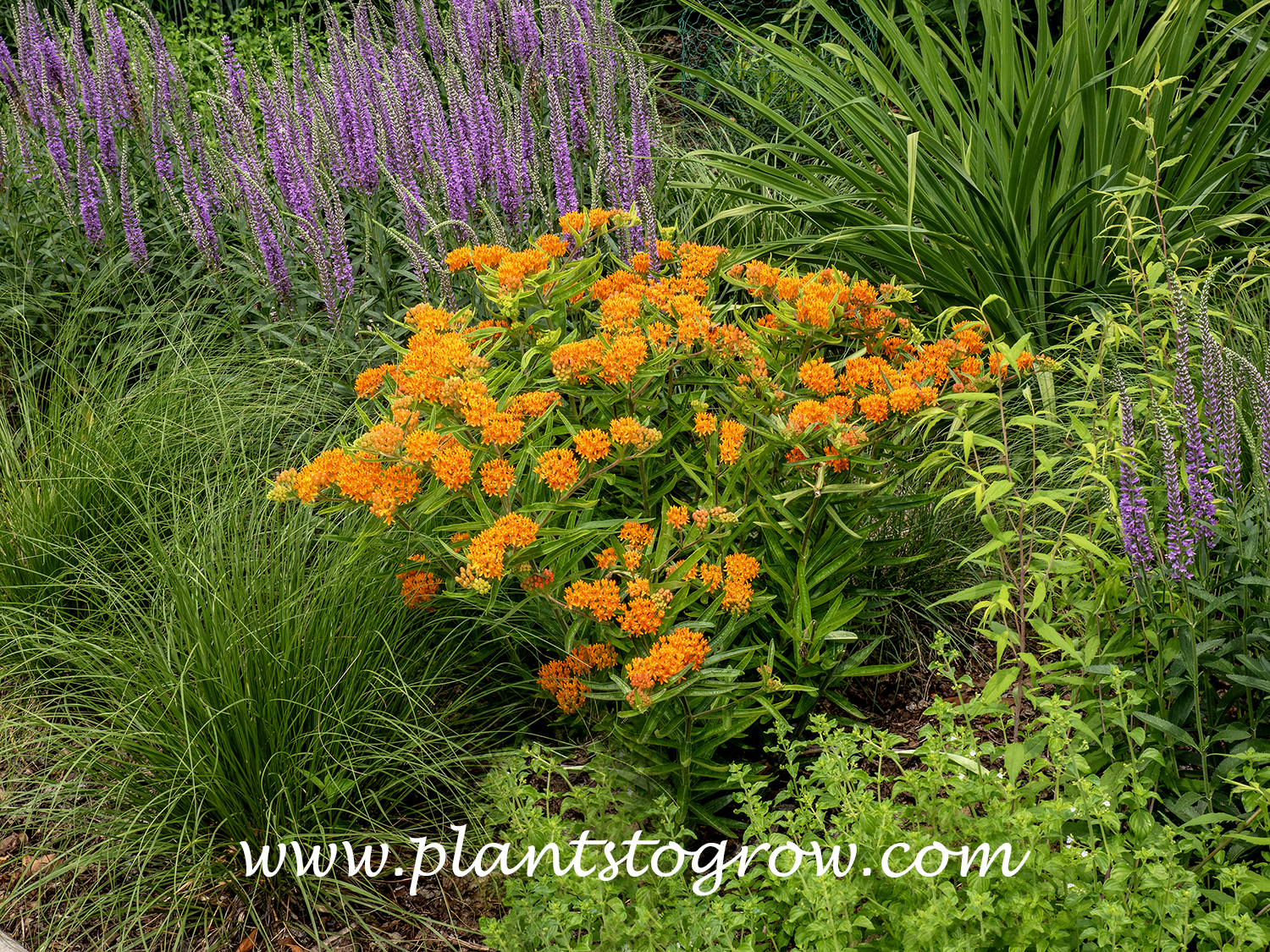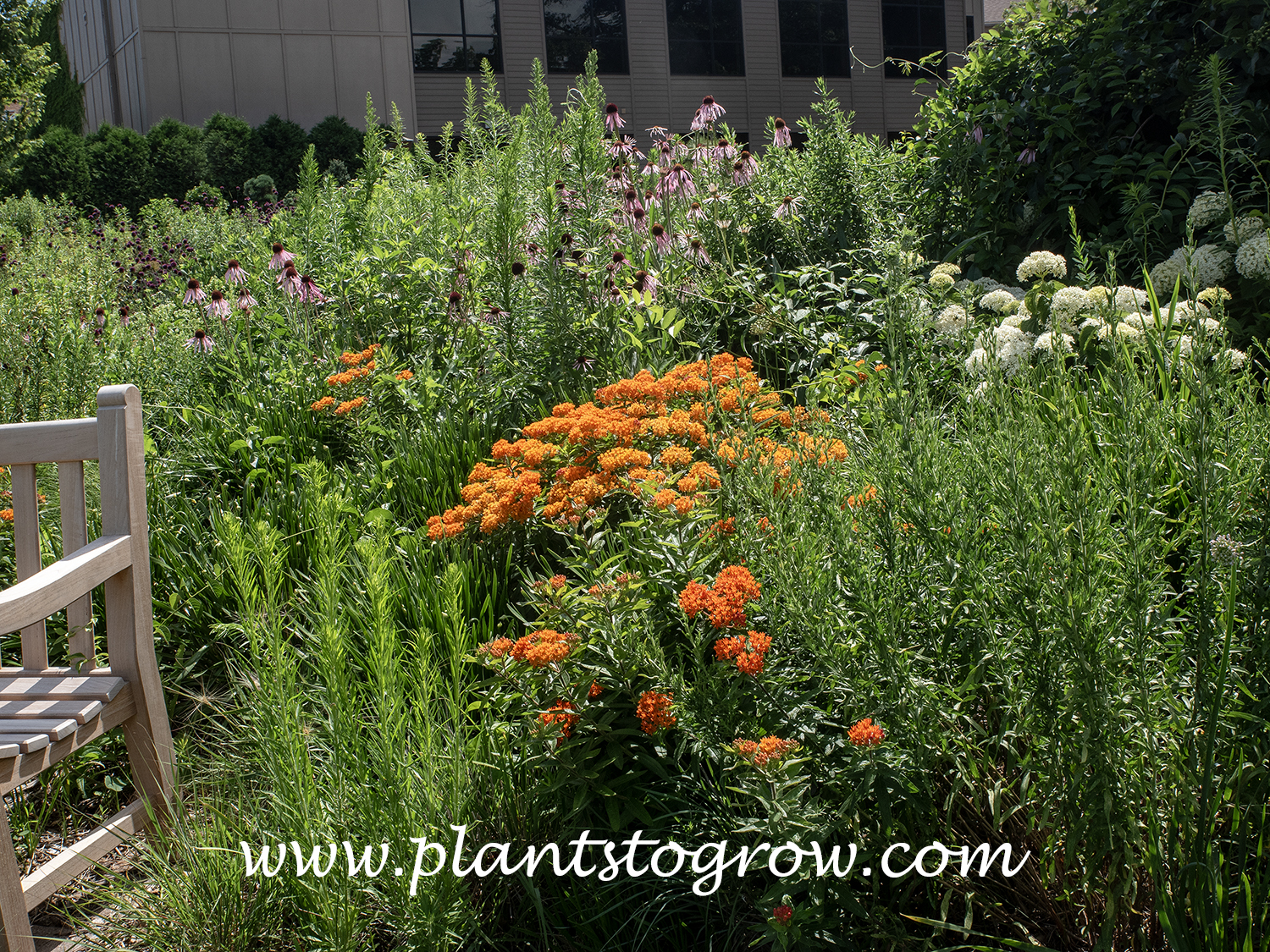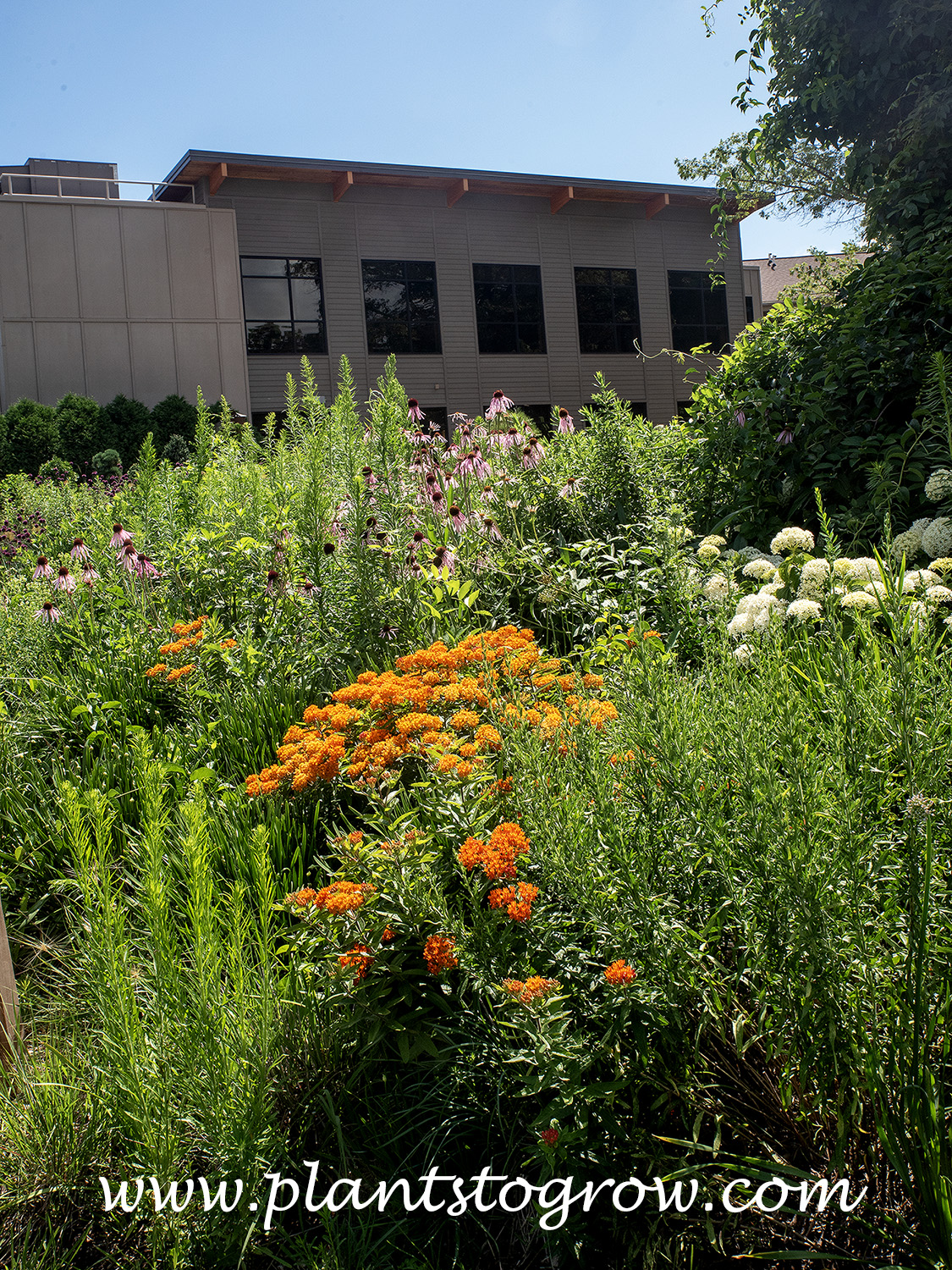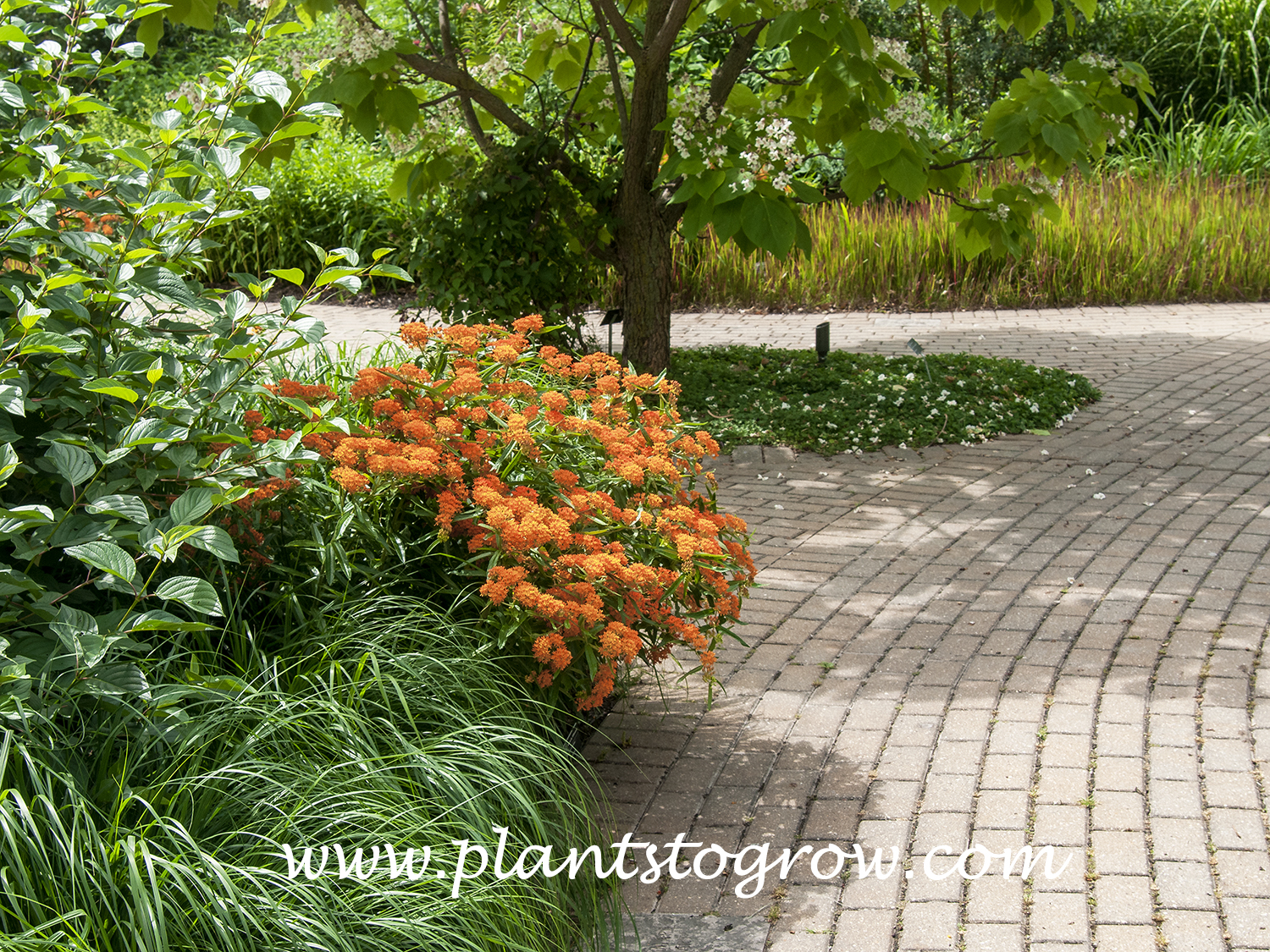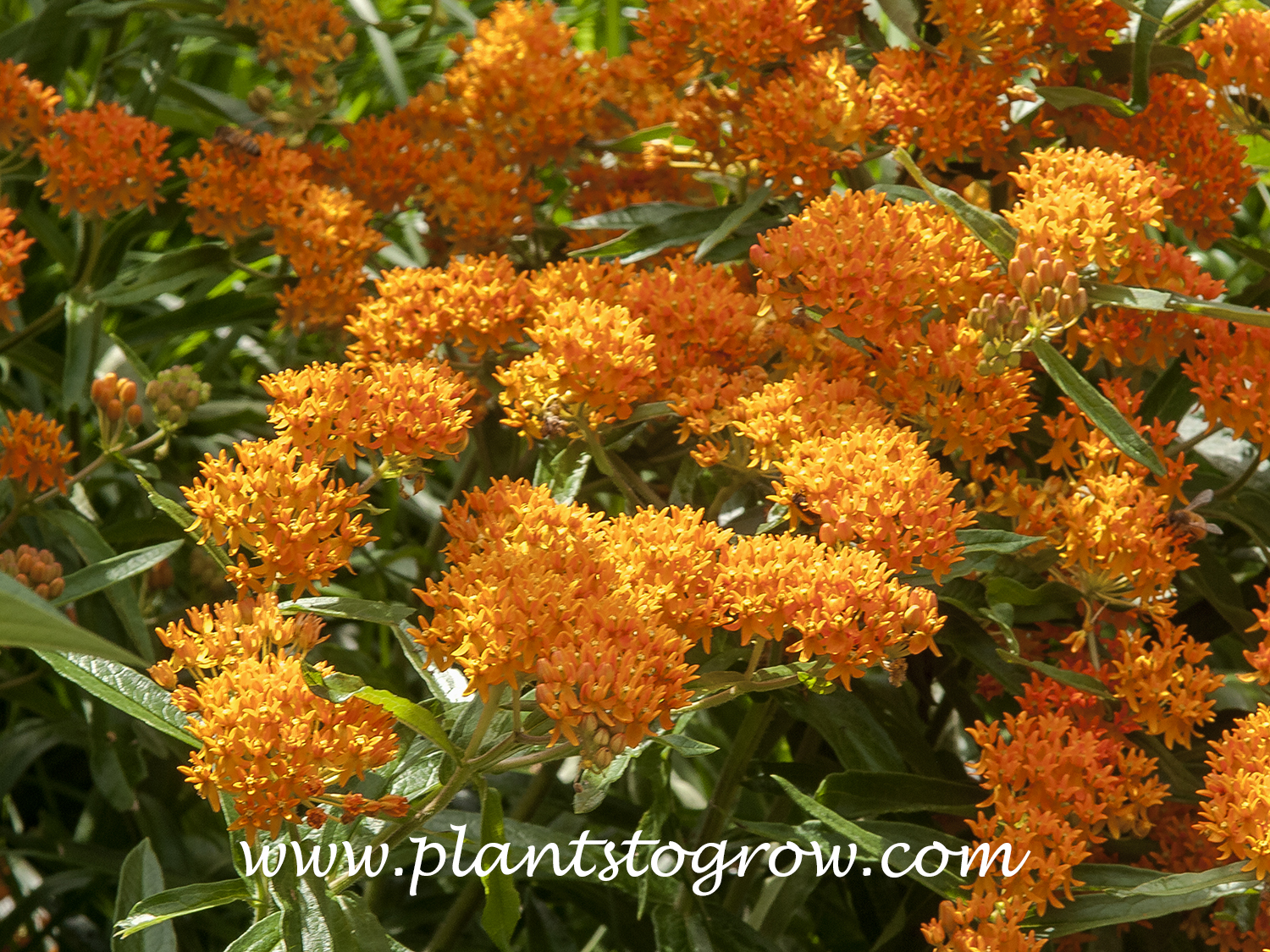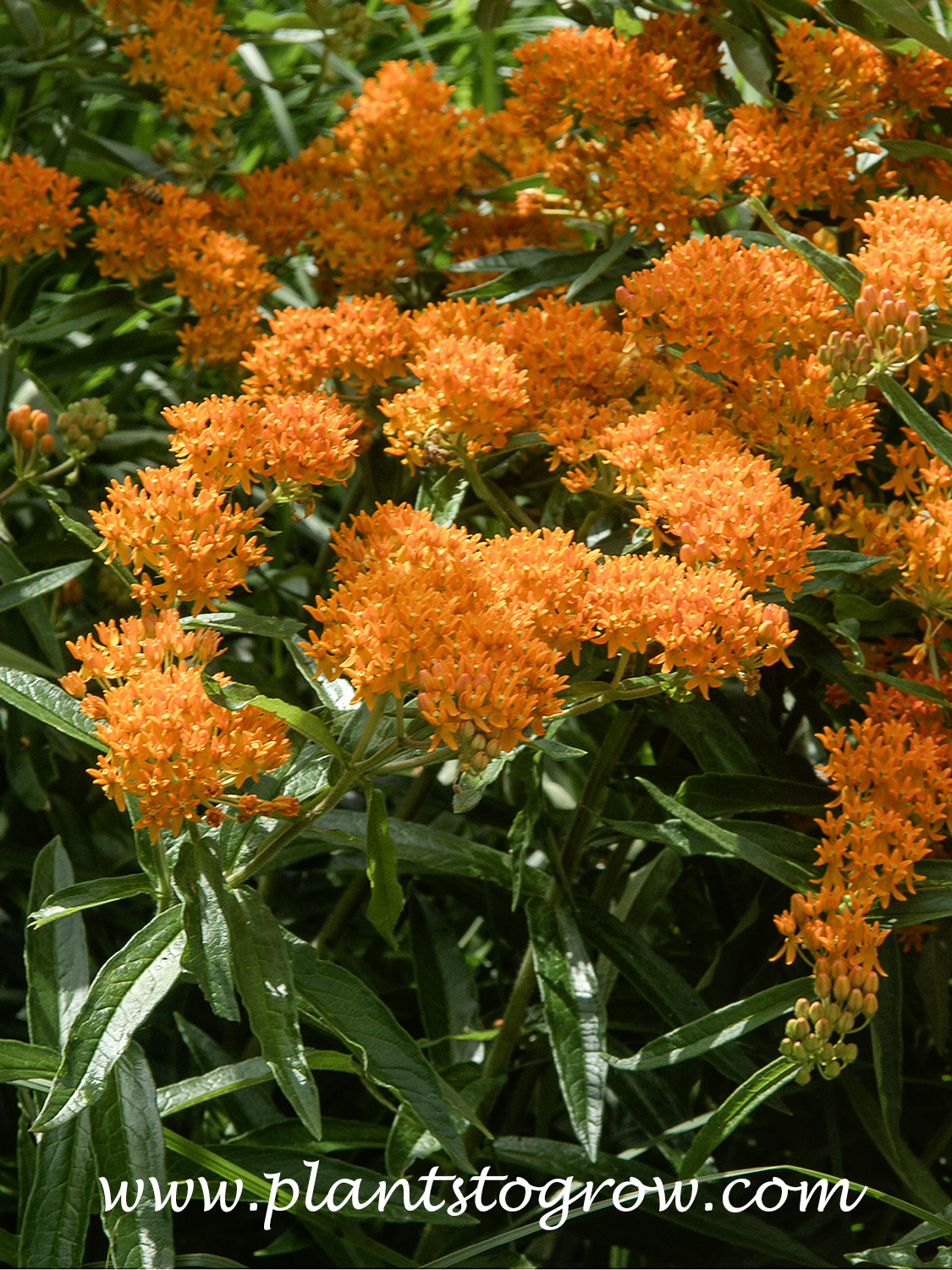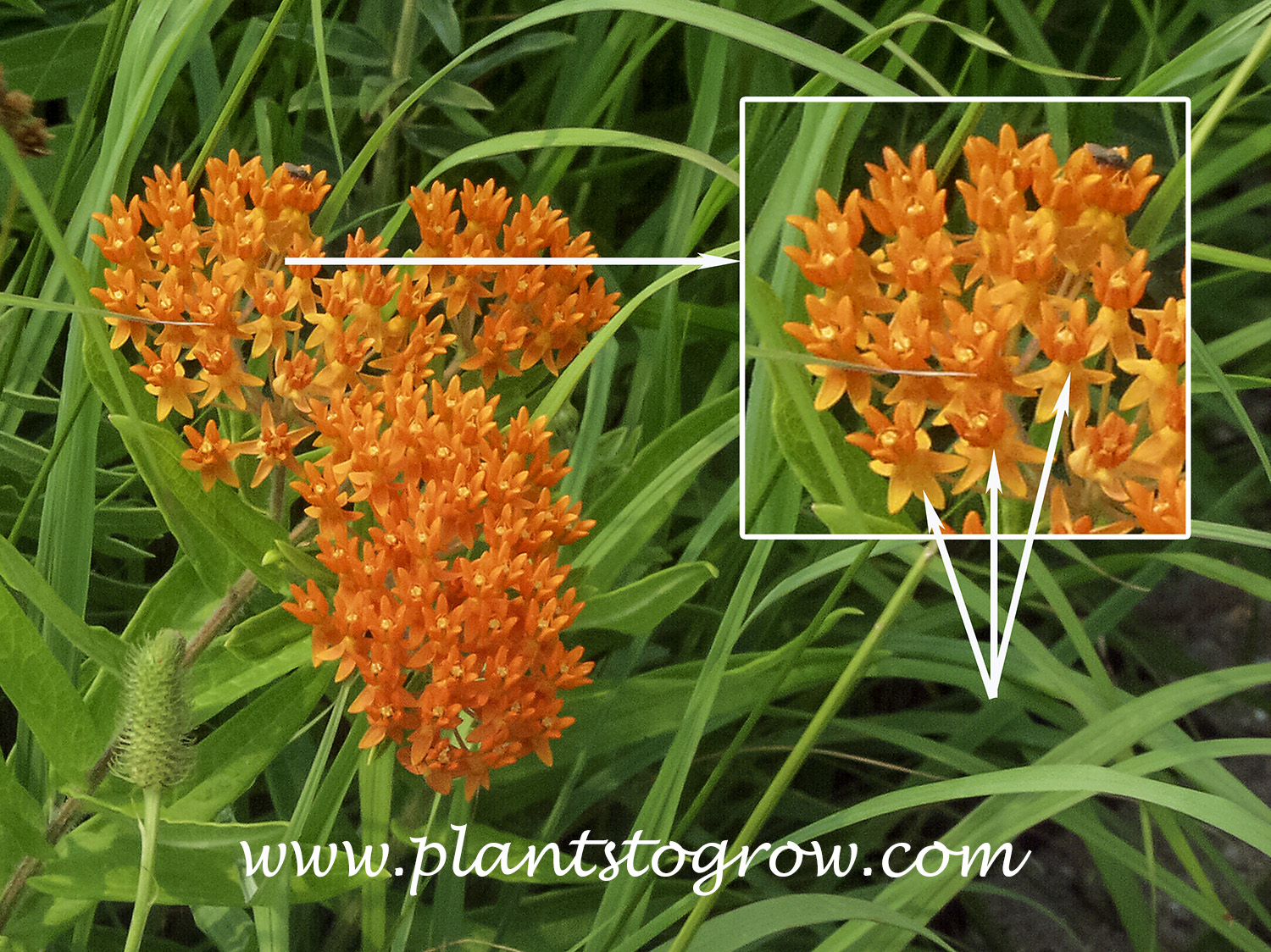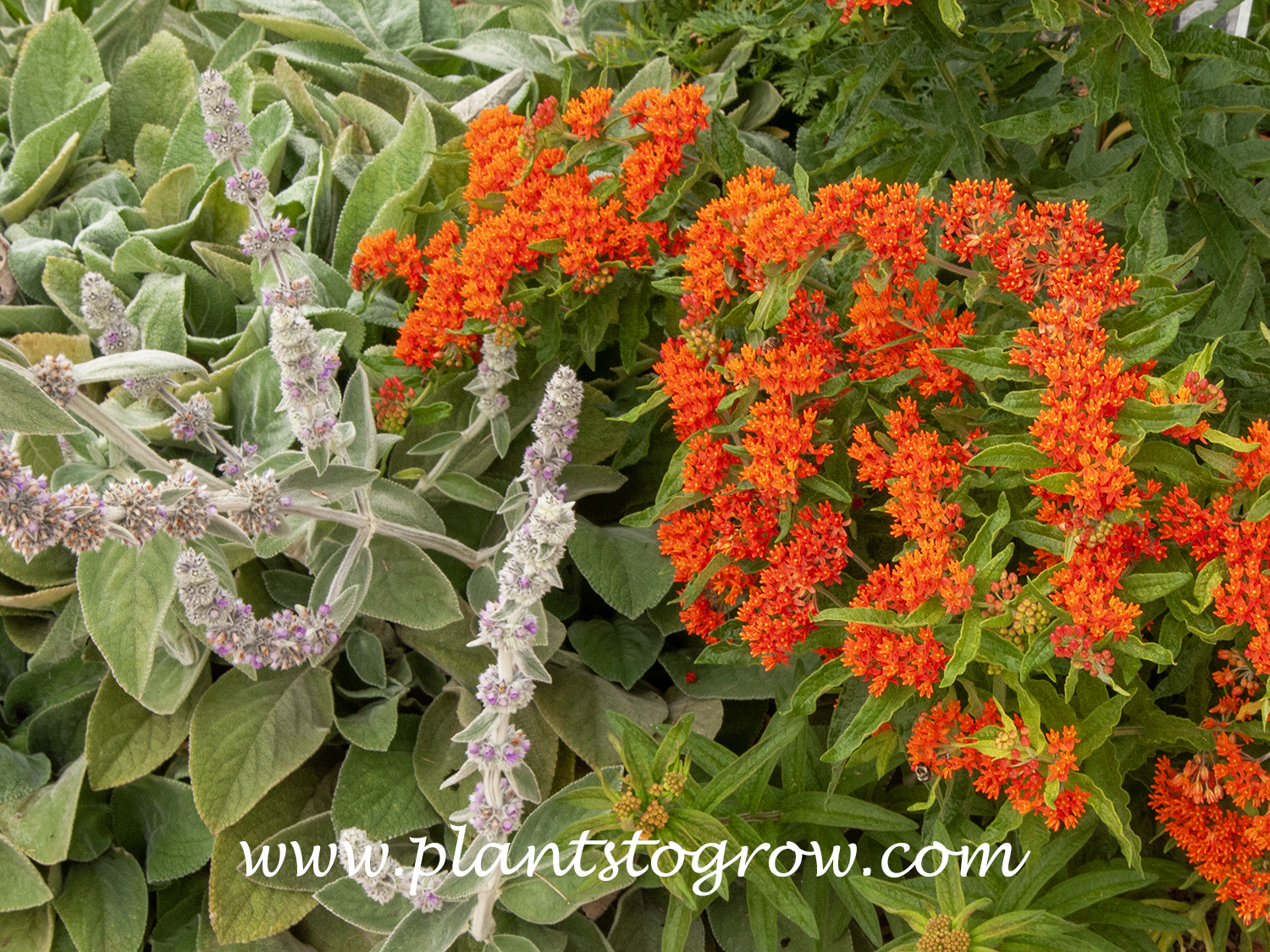| Description | Butterfly Weed (Asclepias tuberosa) is a native prairie plant with brilliant orange flowers. Once established, it is great for hot, dry, poor-soil areas. |
|---|---|
| Pronunciation | (as-KLEE-pi-as)(tuu-be-ROW-sa) |
| Plant Type | Perennials Hardy, Wild Flowers, Site author's observations |
| Hardiness Zone | 4 |
| Sunlight | best in full sun |
| Moisture | average to dry, draught tolerant |
| Soil & Site | sandy, well drained, poor, does poorly in wet soils |
| Flowers | Clusters of 25 or more 3/4 inch flowers in brilliant orange umbels on stalks from the apex of a leaf. |
| Fruit | The seed pod is bean-shaped, 6 inches long by 3/4 inch, and has silky-tailed seeds for dispersal by the wind. |
| Leaves | Narrow, stackless (sessile), or short petiole, usually alternate but occasionally opposite, hispid (hairy). |
| Stems | hairy (pubescent) |
| Roots | deep tap root |
| Dimensions | around 2 feet |
| Maintenance | Produces a deep tap root making transplanting difficult. Mark the plants spot. It breaks dormancy late and can be unknowingly damage early the spring |
| Propagation | seeds |
| Native Site | Native to America. |
| Misc Facts | Genus name honors the Greek god Asklepios, the god of medicine. Specific species means "tuberous" about the roots. It attracts butterflies, hence butterfly weed and Pleurisy Root, because early physicians used it to treat pleurisy and other lung problems. AKA: Pleurisy Flower, Chigger Flower, Indian Paint Brush, Orange Milkweed, Butterfly Weed |
| Author's Notes | At my perennial nursery, we would buy Butterfly Weed roots to pot up for sale. They were long, thin, and carrot-like, and finding tall enough pots for the plants was difficult. |
| Notes & Reference | #40-Herbaceous Ornamental Plants (Steven Stills),#56-Tall Grass Prairie Wildflowers (Doug Ladd), #274-Site Authors' observations and growing experiences of Butterfly Weed |

Cart
